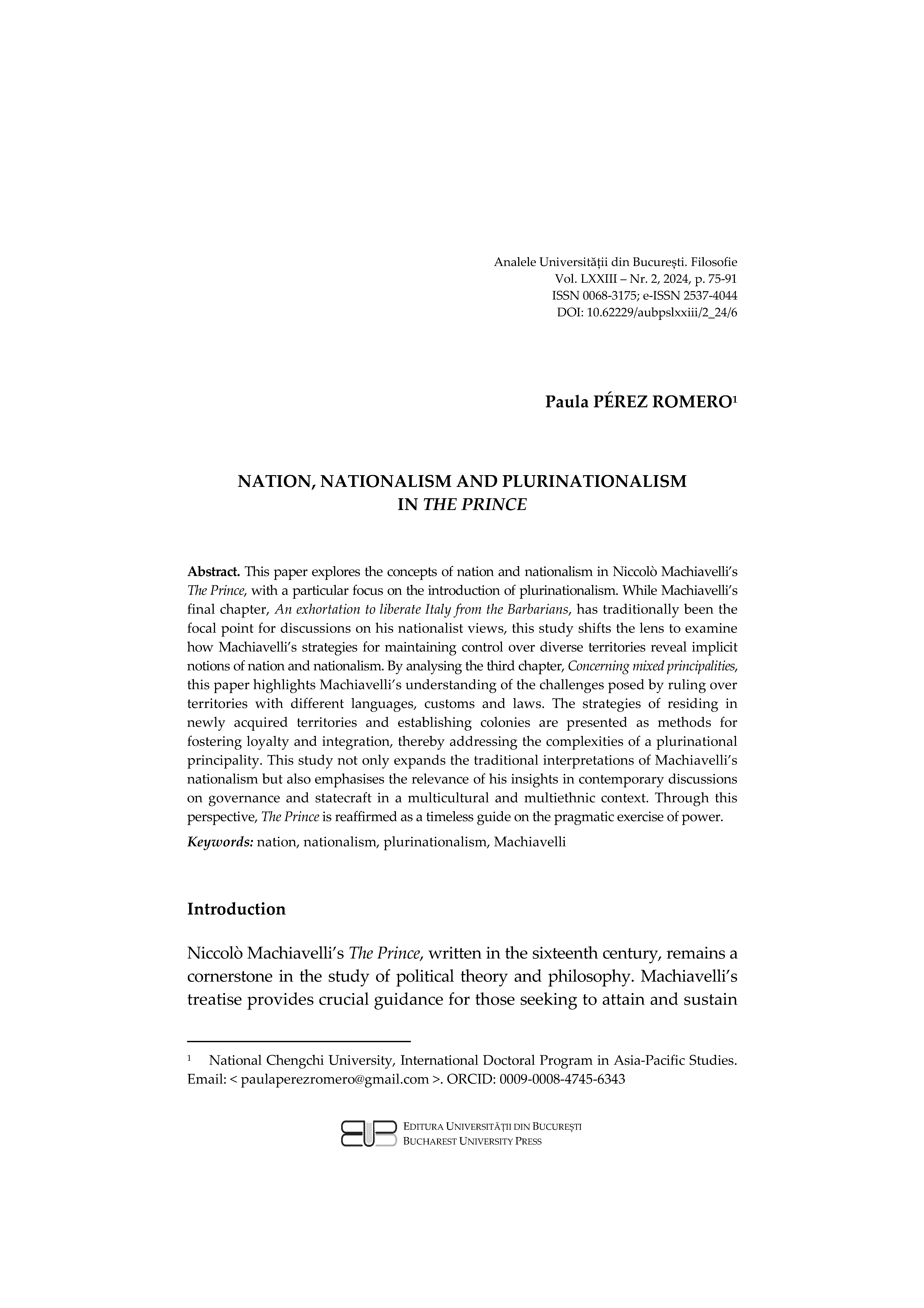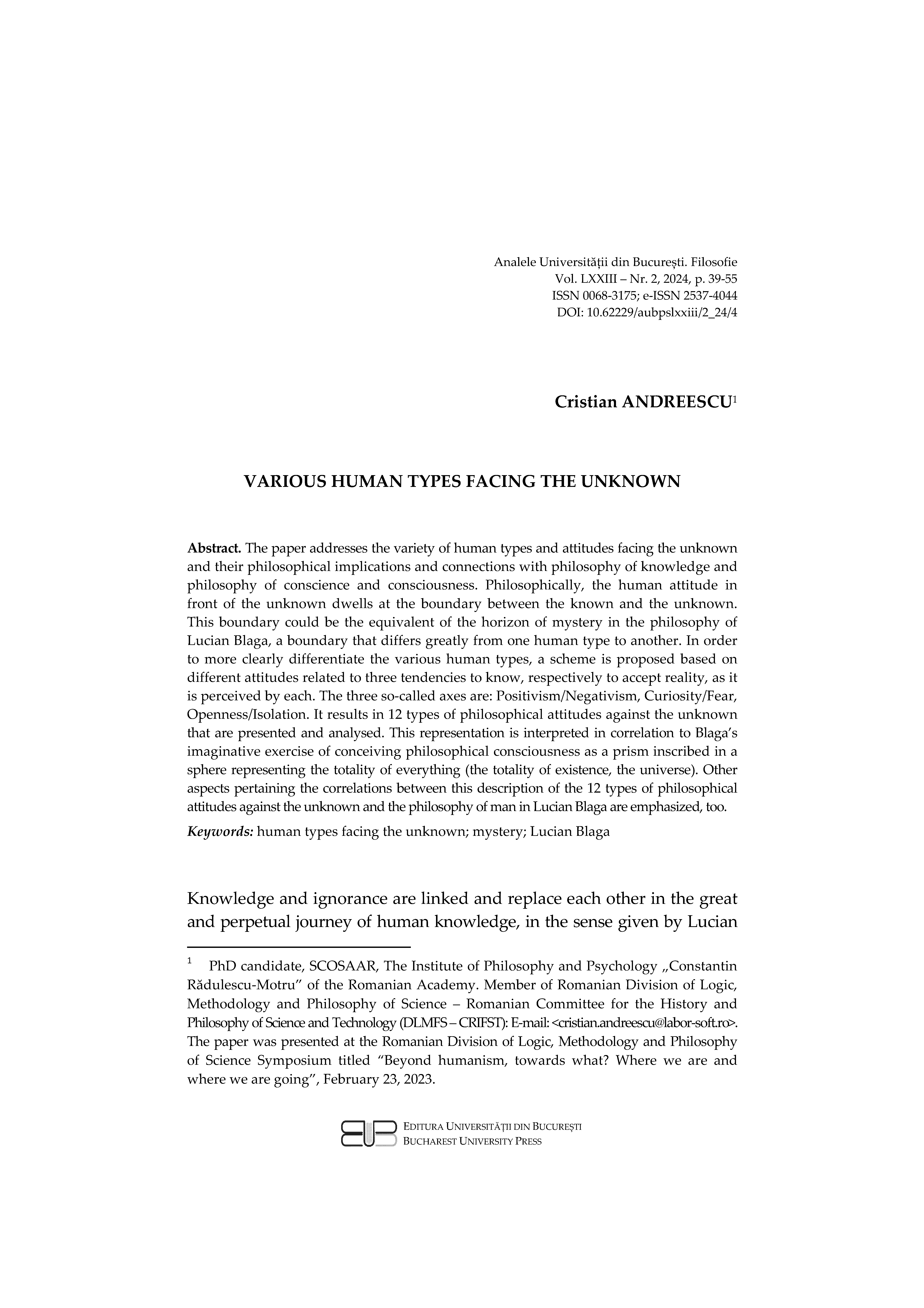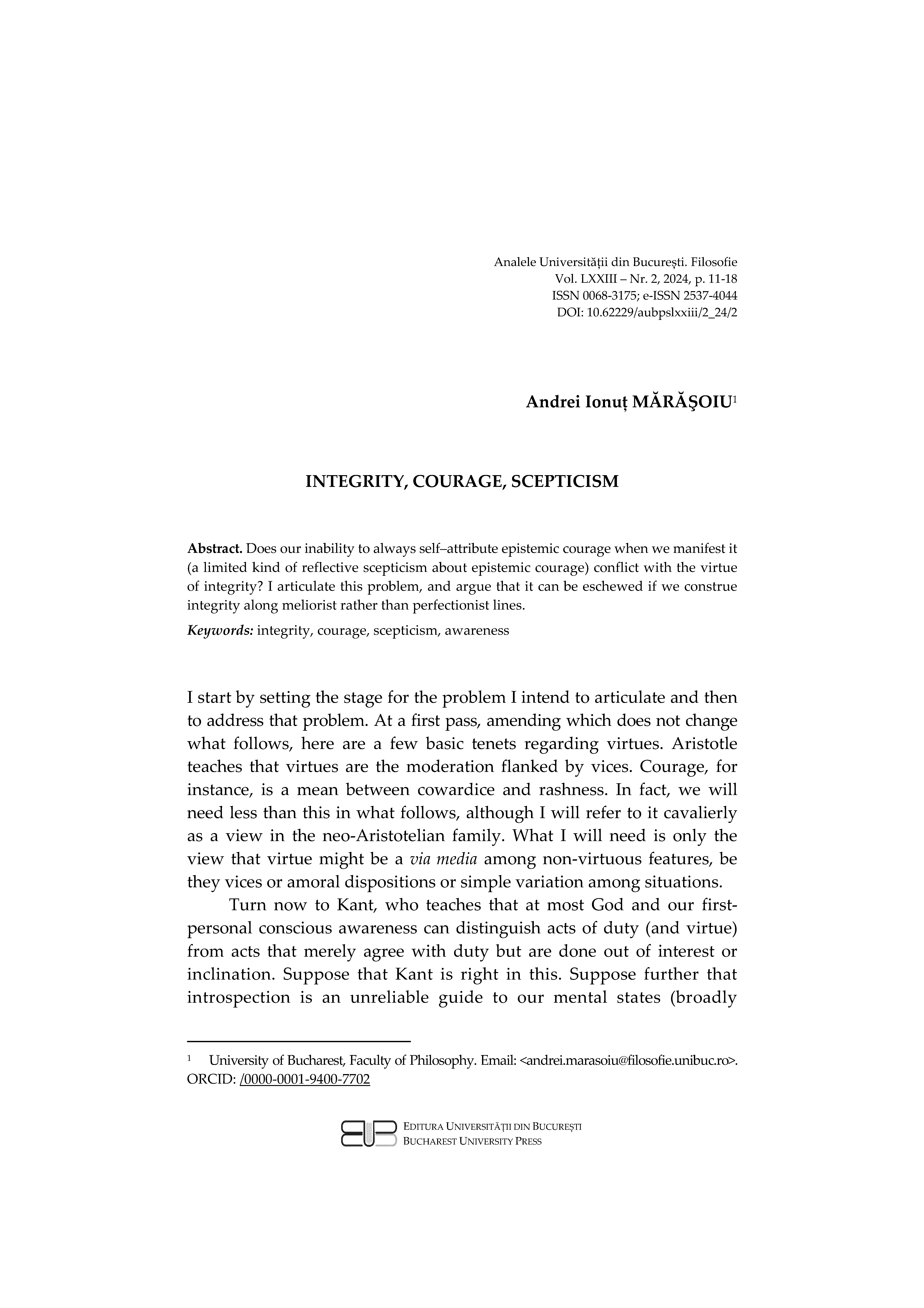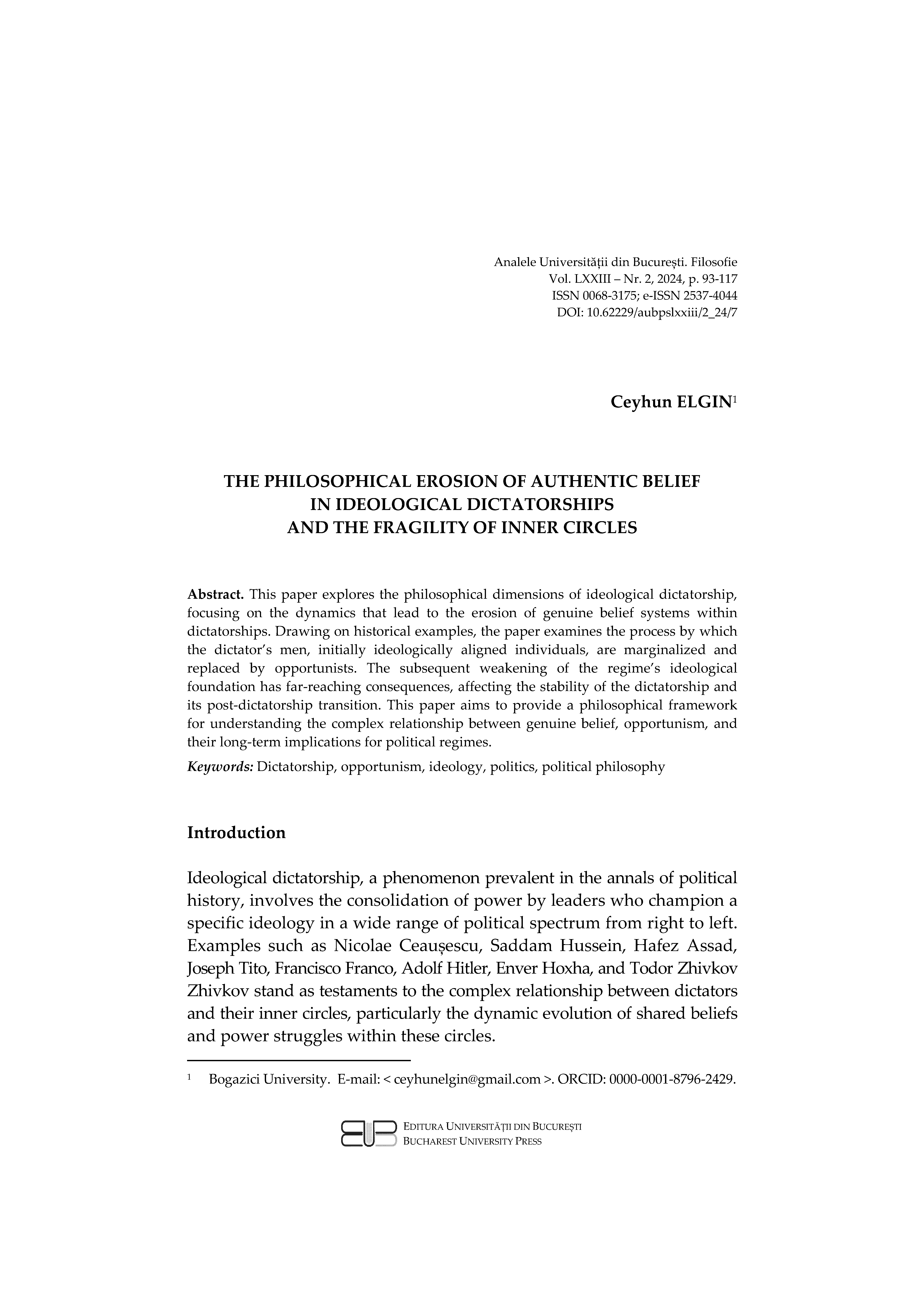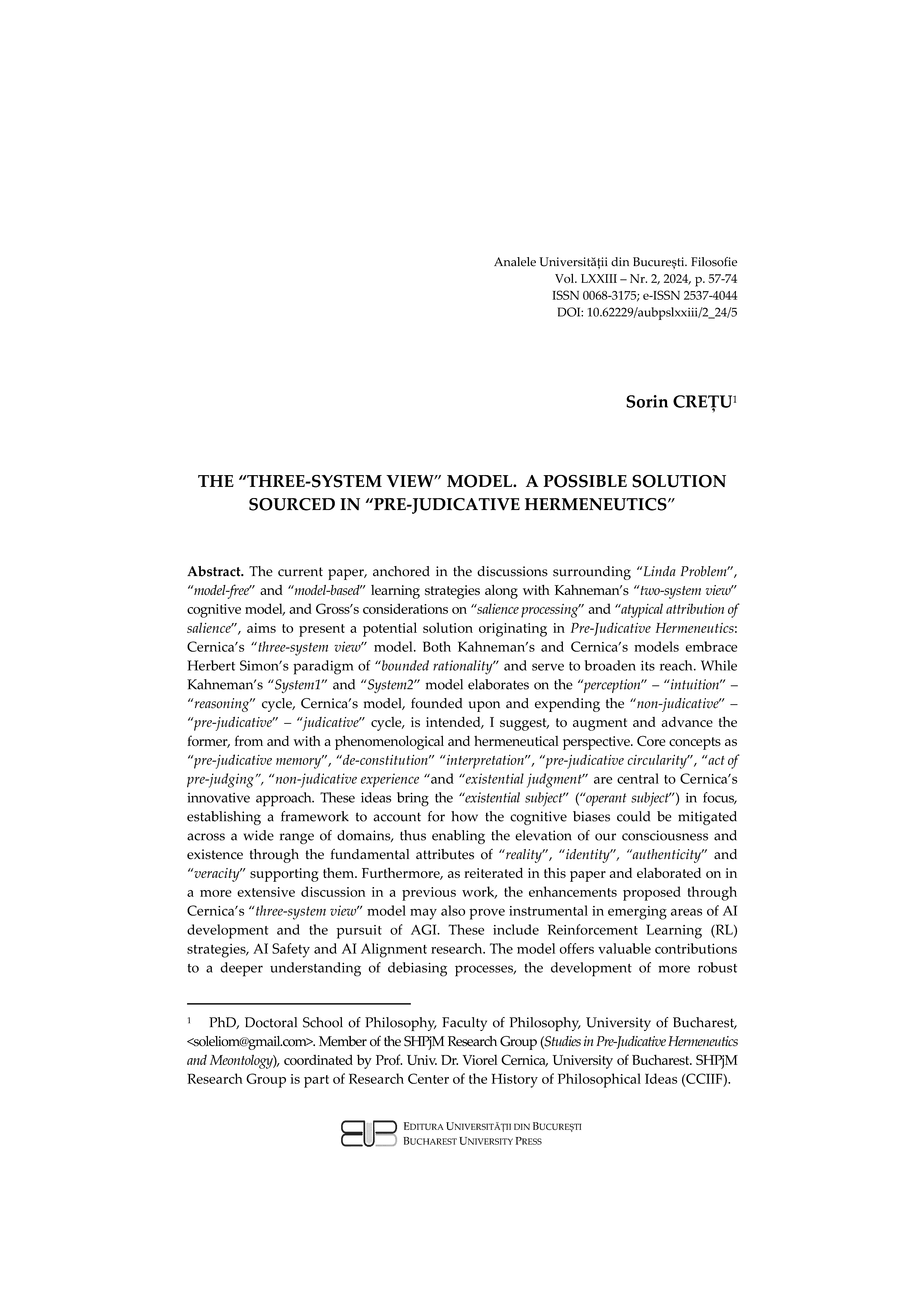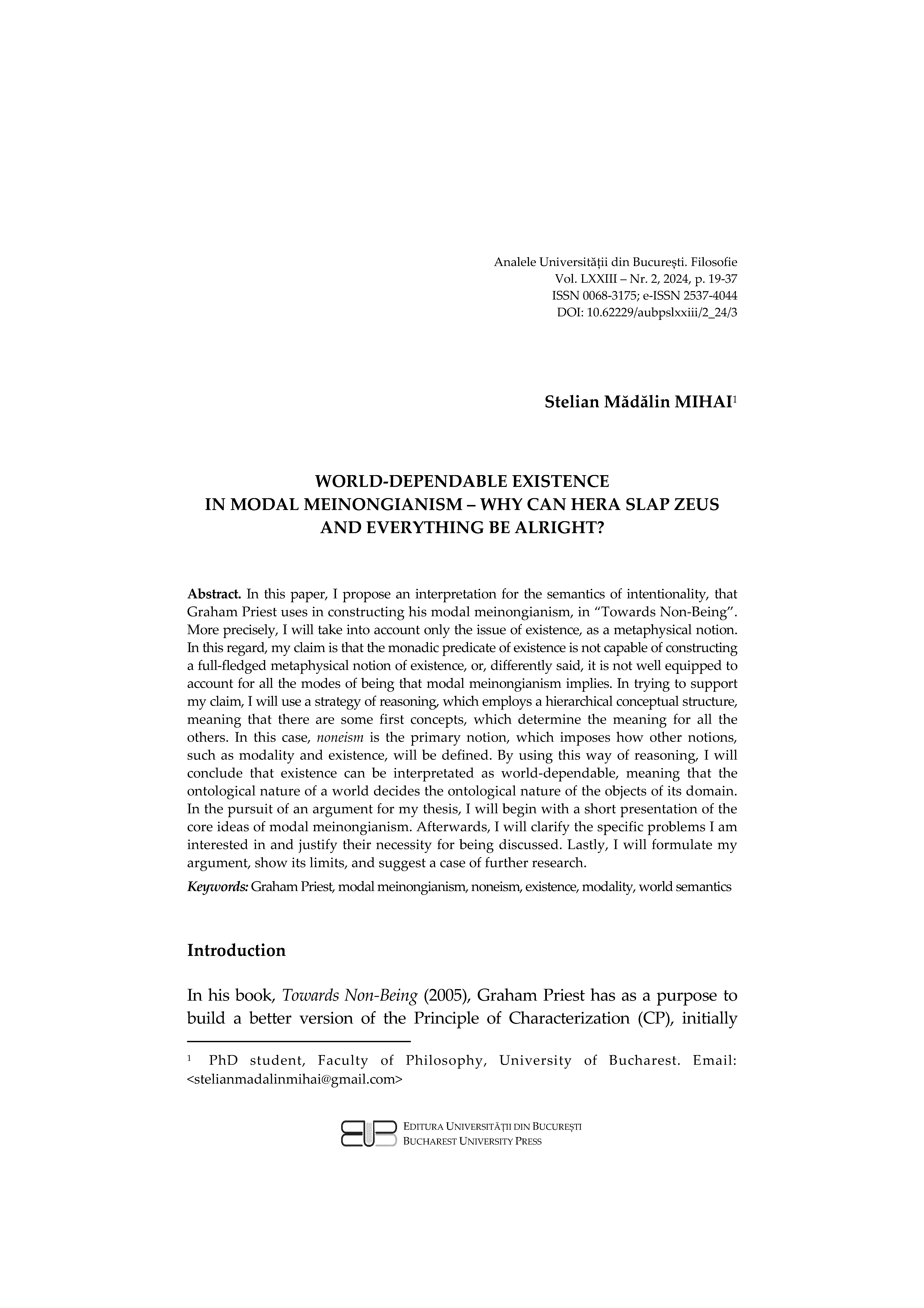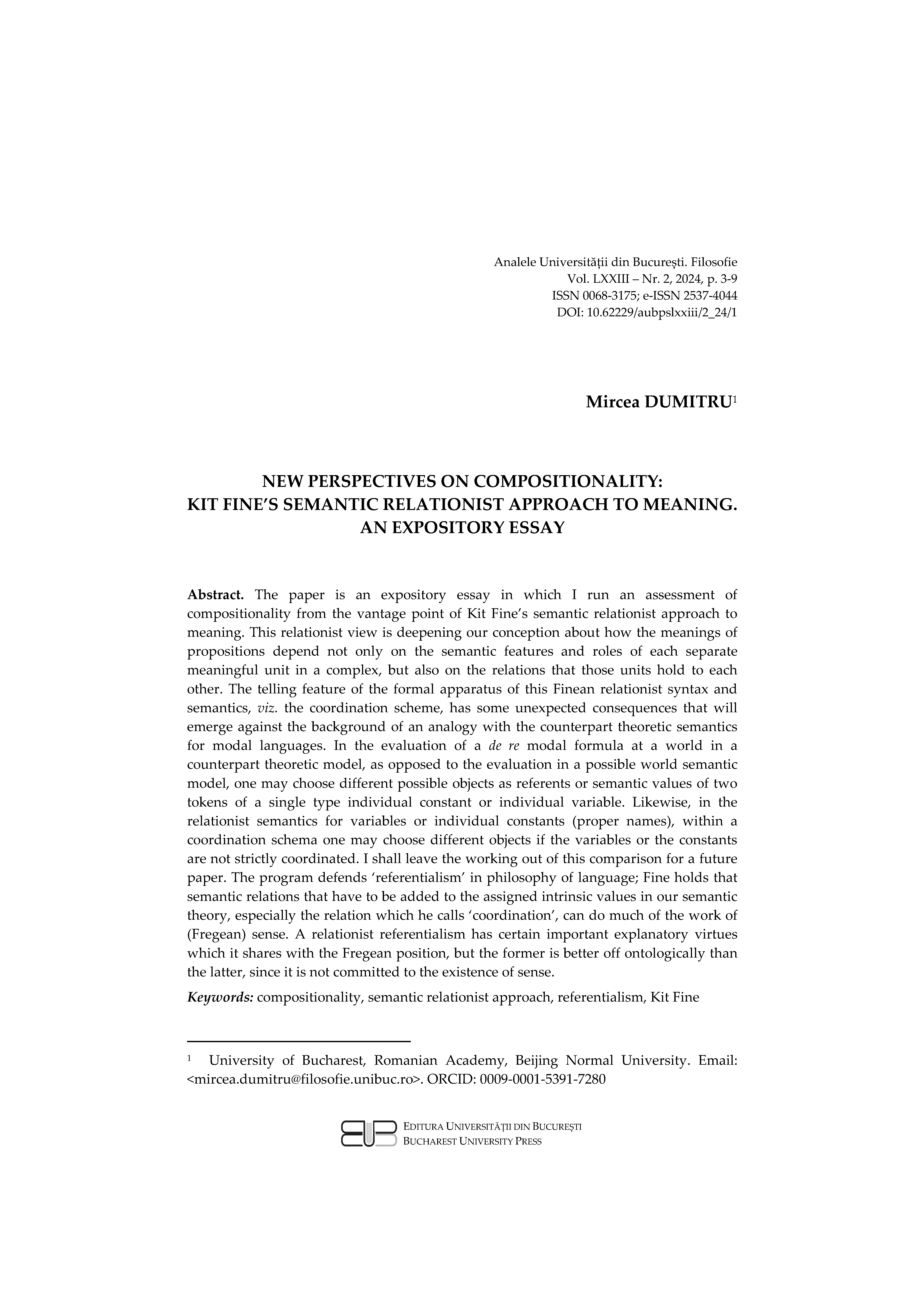About the Journal
The Annals of the University of Bucharest – Philosophy Series, is a philosophical research open-access journal, published by the University of Bucharest, Faculty of Philosophy.
The Annals of the University of Bucharest, Philosophy Series, is a scholarly double blind peer reviewed journal. The journal publishes articles considered of relevance for those interested in the field of philosophy and is addressed both to the Romanian and international philosophical community, with a special accent on East- and Central-European area.
The Annals of the University of Bucharest, Philosophical series, is devoted to the exploration of different topics of Philosophy.
Currently the journal is indexed by EBSCOhost, Philosopher’s Index with Full Text , ERIH PLUS, CEEOL, DOAJ, ESCI.
Current Issue
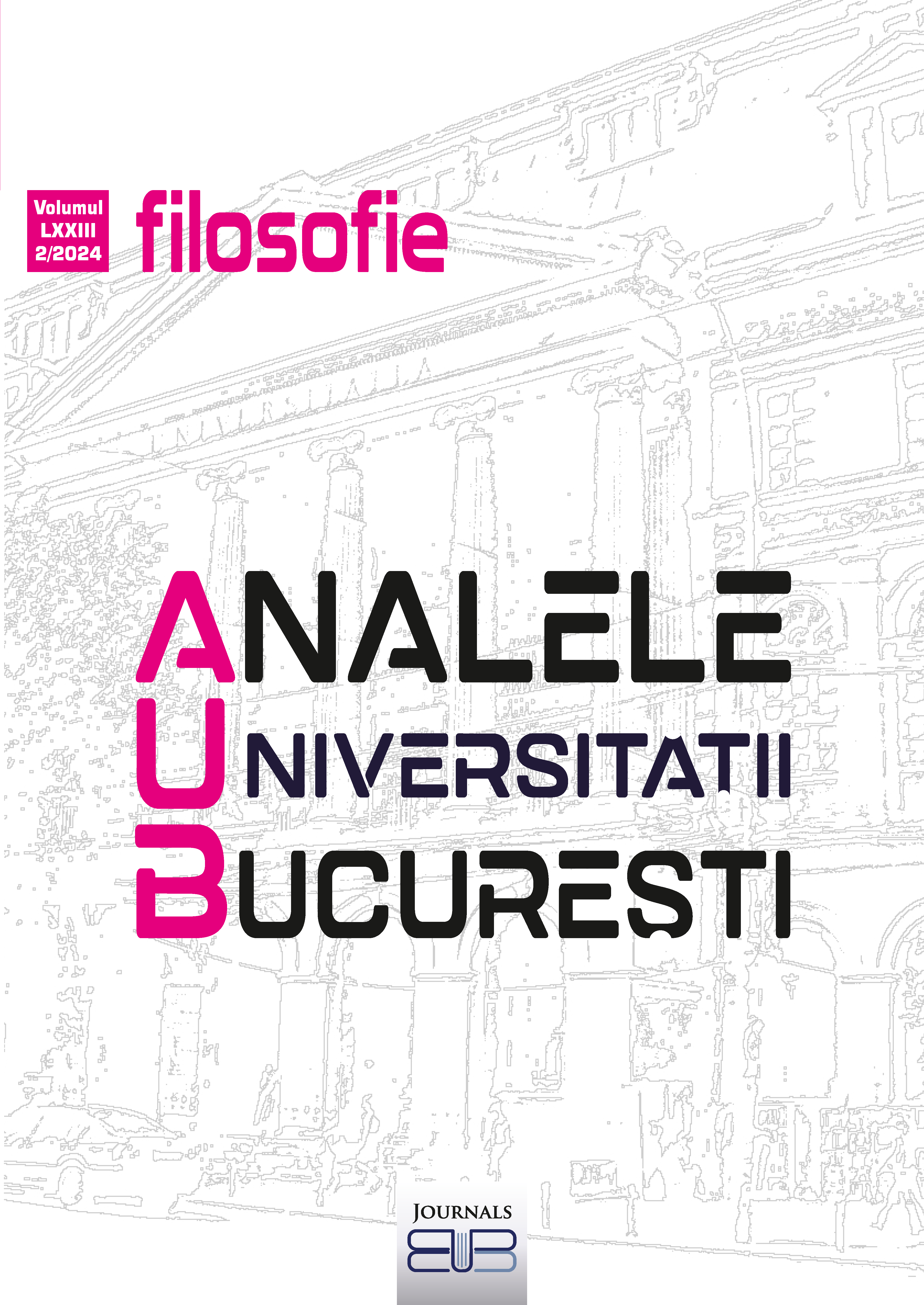
The Annals of the University of Bucharest, Philosophical series, is a scholarly double blind peer reviewed journal. The journal publishes articles considered of relevance for those interested in the field of philosophy and is addressed both to the Romanian and international philosophical community, with a special accent on East- and Central-European area.
The Annals of the University of Bucharest, Philosophical series, is devoted to the exploration of different topics of Philosophy

